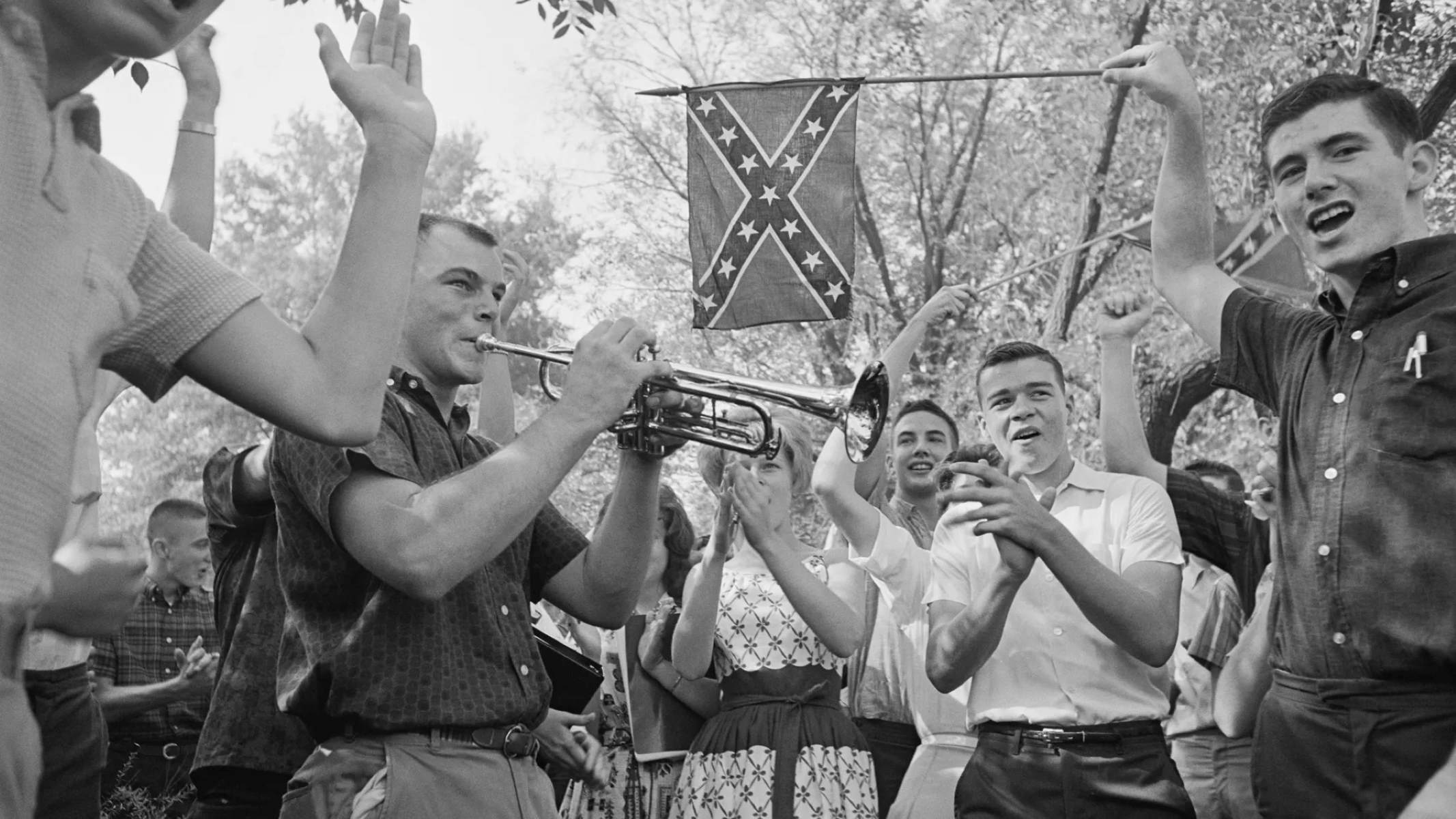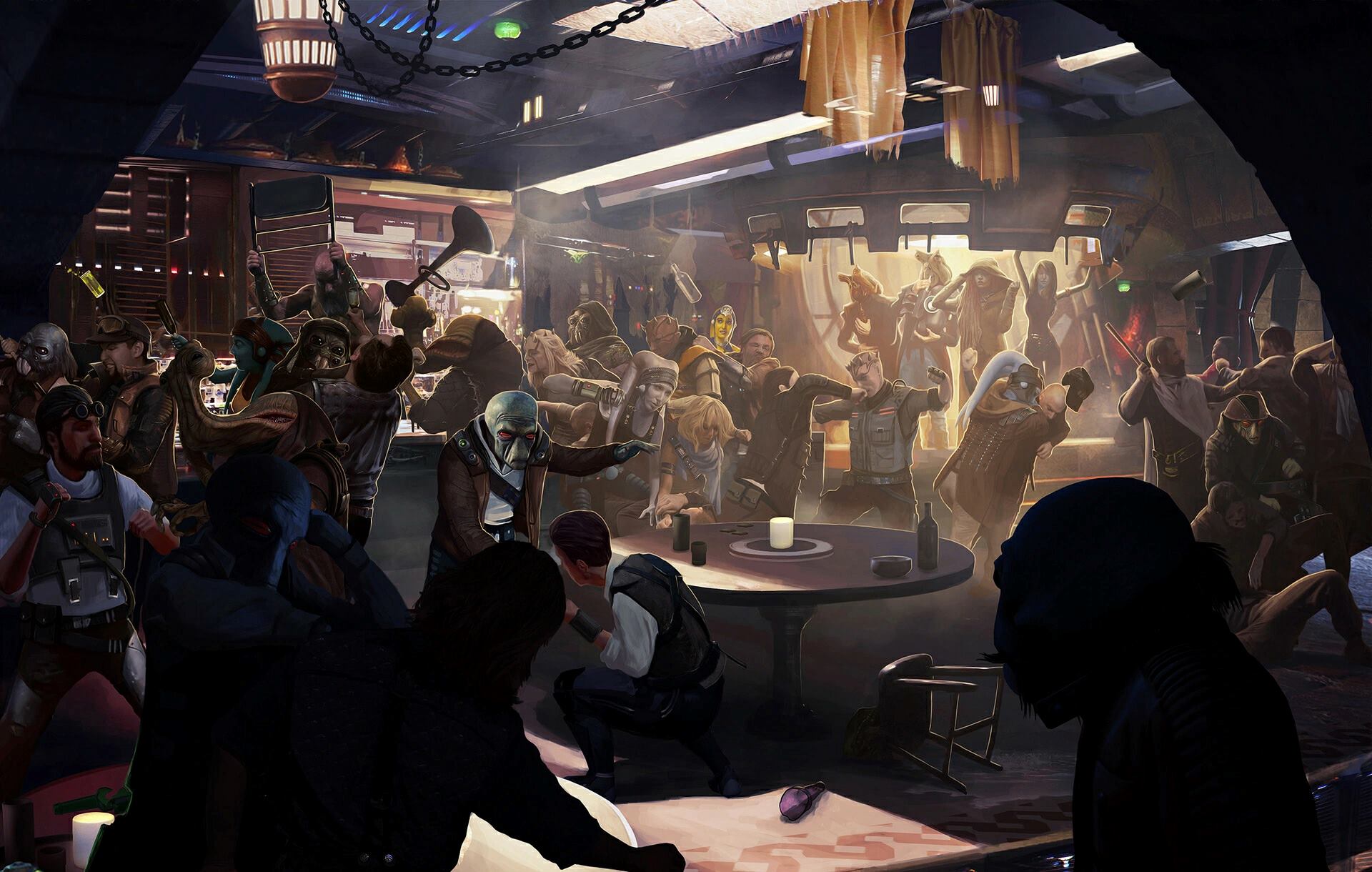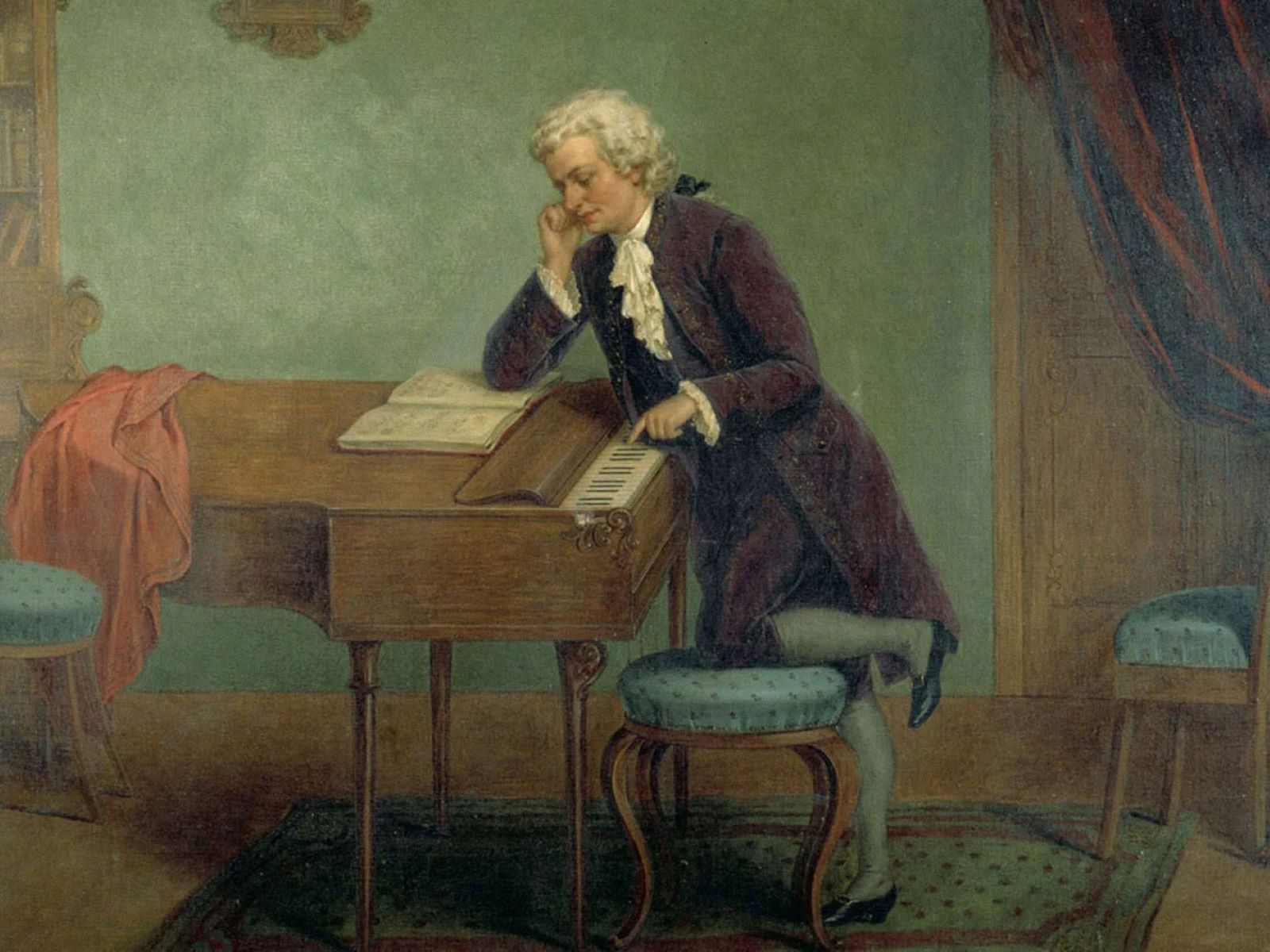Home>Opinion and Editorial>The Double Standard: Why Is Racism In Music Acceptable?


Opinion and Editorial
The Double Standard: Why Is Racism In Music Acceptable?
Published: January 24, 2024
Explore the double standard of racism in music and its societal acceptance in this thought-provoking opinion and editorial piece. Understand the complexities and implications of this prevalent issue.
(Many of the links in this article redirect to a specific reviewed product. Your purchase of these products through affiliate links helps to generate commission for Regretless.com, at no extra cost. Learn more)
Table of Contents
Introduction
Racism has been a pervasive issue in various facets of society, and the music industry is no exception. While advancements have been made in addressing racism in many areas, the music industry continues to grapple with a troubling double standard. Despite strides toward equality and inclusivity, racism in music often goes unchallenged and, in some cases, is even celebrated. This double standard raises important questions about the societal acceptance and perpetuation of racism within the music industry.
Throughout history, music has served as a reflection of societal norms and values. It has the power to influence and shape cultural attitudes, making it a potent platform for either promoting unity or perpetuating division. Unfortunately, the latter has been a recurring theme in the music industry, with instances of racially charged lyrics, derogatory stereotypes, and discriminatory practices that have been allowed to persist.
As we delve into the complexities of racism in music, it becomes apparent that the industry's historical context plays a pivotal role in shaping current perceptions and behaviors. Understanding the roots of racism in music is essential for addressing its prevalence and impact on society. By examining the historical underpinnings, we can gain insight into how and why racist themes have persisted in music, despite the evolving social consciousness and activism.
The prevalence of racism in music demands critical examination, as it not only reflects the industry's internal dynamics but also mirrors broader societal attitudes. By shedding light on this issue, we can foster a deeper understanding of the complex interplay between music, culture, and racism. This exploration will serve as a catalyst for challenging the status quo and advocating for meaningful change within the music industry.
In the following sections, we will delve into the historical context of racism in music, examine specific examples that illustrate this phenomenon, analyze the role of media and society in perpetuating racism in music, explore the impact of racism in music on society, and discuss strategies for addressing and challenging racism within the industry. Through this comprehensive exploration, we aim to provoke critical dialogue and inspire positive action toward dismantling the double standard that allows racism to persist in the realm of music.
Historical Context of Racism in Music
The historical context of racism in music is deeply intertwined with the broader narrative of racial discrimination and inequality. From the early days of the music industry, racial prejudice has shaped the experiences of artists and the content of musical compositions. The roots of racism in music can be traced back to the era of slavery and segregation in the United States, where African American musicians faced systemic oppression and exploitation.
During the slavery era, African American slaves used music as a means of expressing their struggles, aspirations, and cultural identity. Spirituals and work songs served as powerful forms of resistance and resilience, embodying the indomitable spirit of a marginalized community. However, these musical expressions were often appropriated and commercialized by white musicians and publishers, leading to the erasure of the original creators' contributions.
The early 20th century witnessed the rise of racial segregation in the music industry, with African American artists being relegated to "race records" and "race music" categories, which marginalized their work from mainstream audiences. This segregation perpetuated the devaluation of African American musical contributions and reinforced racial stereotypes.
The pervasive influence of racism in music is also evident in the era of minstrelsy, where white performers donned blackface and perpetuated derogatory caricatures of African Americans for entertainment. These performances not only reinforced racist stereotypes but also contributed to the normalization of discriminatory attitudes within popular culture.
Furthermore, the emergence of genres such as jazz, blues, and rock and roll, which were pioneered by African American artists, faced significant resistance and appropriation by white musicians and industry figures. This appropriation often resulted in the erasure of the original creators' contributions and the perpetuation of racial inequality within the music industry.
The historical context of racism in music underscores the enduring legacy of discrimination and exploitation faced by marginalized communities within the industry. It serves as a sobering reminder of the systemic barriers that have hindered the equitable recognition and celebration of diverse musical traditions.
Understanding this historical context is essential for recognizing the pervasive impact of racism in music and its enduring influence on contemporary musical expressions. By acknowledging the historical injustices and struggles of marginalized communities, we can begin to confront the deep-seated biases that continue to shape the music industry today.
In the next section, we will examine specific examples of racism in music, shedding light on the enduring manifestations of discriminatory attitudes within musical content and industry practices.
Examples of Racism in Music
Racism in music has manifested through various explicit and implicit forms, perpetuating harmful stereotypes and discriminatory narratives. One prominent example is the proliferation of racially charged lyrics in popular songs, which have perpetuated derogatory portrayals of minority groups. These lyrics often reinforce harmful stereotypes and contribute to the normalization of racist attitudes within the music industry.
Additionally, the phenomenon of cultural appropriation has been a pervasive issue, wherein elements of marginalized cultures are commodified and exploited for commercial gain without proper acknowledgment or respect for their origins. This practice has resulted in the erasure of the cultural significance and historical context of musical traditions, perpetuating systemic inequality and marginalization.
Furthermore, the underrepresentation and misrepresentation of minority artists within the music industry have reinforced racial biases and hindered the equitable recognition of diverse voices. This has contributed to the perpetuation of a homogenized and predominantly white-centric music landscape, marginalizing the contributions of artists from underrepresented communities.
Another concerning example is the historical exploitation of African American artists by music labels and industry figures, leading to the systemic devaluation of their work and the perpetuation of economic disparities. This exploitation has contributed to the erasure of the original creators' contributions and the perpetuation of racial inequality within the music industry.
Moreover, the prevalence of racially insensitive imagery and performances in music videos and live shows has perpetuated harmful stereotypes and reinforced discriminatory narratives. These visual representations have contributed to the normalization of racist imagery and attitudes, further entrenching the pervasive impact of racism within the music industry.
The examples of racism in music underscore the multifaceted nature of discriminatory attitudes and practices within the industry. These manifestations of racism have perpetuated harmful stereotypes, marginalized minority voices, and perpetuated systemic inequality. Addressing these examples requires a concerted effort to challenge and dismantle the pervasive influence of racism within the music industry, fostering a more inclusive and equitable landscape for all artists and audiences.
The Role of Media and Society in Perpetuating Racism in Music
The perpetuation of racism in music is significantly influenced by the role of media and societal attitudes, which play a pivotal role in shaping and reinforcing discriminatory narratives within the industry. Media platforms, including radio, television, and digital streaming services, have historically played a central role in amplifying and normalizing racially insensitive content, thereby perpetuating harmful stereotypes and contributing to the marginalization of minority voices.
Music media outlets have often prioritized and promoted music that aligns with mainstream, predominantly white narratives, thereby perpetuating the marginalization of diverse musical traditions and voices. This selective promotion has reinforced the dominance of certain genres and artists while marginalizing others, contributing to the perpetuation of racial inequality within the music industry.
Moreover, the representation of minority artists in media coverage and promotional campaigns has often been limited and overshadowed by the prominence of white artists. This disparity in representation has perpetuated the underrecognition of diverse voices and contributed to the normalization of a predominantly white-centric music landscape, reinforcing racial biases within the industry.
Societal attitudes and consumer behaviors also play a crucial role in perpetuating racism in music. The preferences and consumption patterns of audiences have a direct impact on the music industry's commercial decisions, thereby influencing the visibility and success of artists from diverse backgrounds. The perpetuation of discriminatory attitudes within society has contributed to the marginalization of minority artists and genres, reinforcing the pervasive influence of racism within the music industry.
Furthermore, the lack of critical discourse and accountability within media and societal spaces has allowed racially insensitive content to go unchallenged, contributing to the normalization of discriminatory narratives within music. The absence of meaningful dialogue and proactive efforts to address racism in music has perpetuated the industry's complicity in perpetuating harmful stereotypes and discriminatory practices.
Addressing and challenging the role of media and societal attitudes in perpetuating racism in music requires a concerted effort to promote diversity, equity, and inclusion within media platforms and consumer behaviors. By amplifying diverse voices, critically examining representation, and fostering meaningful dialogue, media and society can play a transformative role in dismantling the pervasive influence of racism within the music industry. This collective effort is essential for fostering a more inclusive and equitable music landscape that celebrates the richness of diverse musical traditions and artists.
Impact of Racism in Music on Society
The impact of racism in music extends far beyond the confines of the music industry, permeating societal attitudes, cultural perceptions, and individual experiences. The pervasive influence of racially insensitive content and discriminatory practices within music has profound implications for societal cohesion, representation, and the perpetuation of harmful stereotypes.
Racism in music contributes to the normalization of discriminatory attitudes and harmful stereotypes within society, shaping cultural perceptions and reinforcing systemic inequality. The proliferation of racially charged lyrics, cultural appropriation, and underrepresentation of minority voices perpetuates a divisive narrative that marginalizes and devalues diverse musical traditions and artists. This perpetuation of racial bias within music has broader implications for societal attitudes, contributing to the normalization of discriminatory narratives and hindering the progress toward a more inclusive and equitable society.
Furthermore, the impact of racism in music extends to individual experiences and psychological well-being. Racially insensitive content within music can perpetuate feelings of alienation, invalidation, and disempowerment among individuals from marginalized communities. The erasure of diverse voices and cultural contributions within the music industry reinforces a sense of exclusion and diminishes the visibility of diverse narratives, impacting the self-esteem and cultural identity of individuals. Moreover, the perpetuation of harmful stereotypes within music can contribute to the internalization of racial biases and the reinforcement of discriminatory attitudes among listeners, perpetuating a cycle of systemic inequality and division.
The societal impact of racism in music also extends to intergroup dynamics and community relations. Music serves as a powerful medium for cultural expression and cross-cultural dialogue, yet the perpetuation of discriminatory narratives within music can hinder efforts toward meaningful intergroup understanding and solidarity. The marginalization of diverse voices within the music industry reinforces social divisions and impedes the collective celebration of cultural diversity, hindering the potential for music to serve as a unifying force within society.
In essence, the impact of racism in music on society is profound and multifaceted, shaping cultural perceptions, individual experiences, and intergroup dynamics. Addressing the pervasive influence of racism within the music industry is essential for fostering a more inclusive and equitable society that celebrates the richness of diverse musical traditions and amplifies the voices of marginalized communities. By recognizing the far-reaching implications of racism in music, we can advocate for meaningful change and promote a music landscape that reflects the diversity and cultural richness of society.
Addressing and Challenging Racism in Music
Addressing and challenging racism in music necessitates a multifaceted and proactive approach that encompasses industry-wide reforms, cultural awareness, and community engagement. One crucial step in this process involves fostering a culture of accountability and responsibility within the music industry. Music labels, production companies, and media outlets must prioritize diversity, equity, and inclusion in their operations, from artist recruitment and promotion to content curation and representation. Implementing inclusive hiring practices, promoting diverse artists, and actively combating discriminatory content are essential measures for dismantling the pervasive influence of racism within the industry.
Furthermore, promoting cultural awareness and education is vital for challenging racism in music. By integrating diverse musical traditions into educational curricula and public discourse, society can gain a deeper appreciation for the richness of global music and the contributions of artists from diverse backgrounds. This educational initiative extends to media literacy, encouraging critical engagement with music content and fostering dialogue about the impact of racially insensitive narratives. By promoting cultural understanding and empathy, society can challenge the normalization of discriminatory attitudes and cultivate a more inclusive music landscape.
Community engagement and activism also play a pivotal role in addressing racism in music. Empowering marginalized voices, amplifying diverse narratives, and advocating for equitable representation within the industry are essential components of community-led initiatives. Supporting grassroots movements, cultural events, and platforms that celebrate diversity can foster meaningful change and challenge the status quo. By fostering a collective commitment to inclusivity and social justice, communities can drive systemic reforms and promote a music industry that reflects the cultural richness and diversity of society.
Additionally, fostering collaboration and solidarity among artists, industry stakeholders, and communities is essential for challenging racism in music. Creating platforms for open dialogue, mutual support, and collective action can facilitate the exchange of ideas and strategies for promoting diversity and equity within the industry. By fostering a collaborative ethos, the music community can work toward dismantling systemic barriers and fostering a more inclusive and equitable music landscape.
In essence, addressing and challenging racism in music requires a concerted effort that spans industry reforms, cultural awareness, community engagement, and collaborative action. By fostering a culture of accountability, promoting cultural understanding, and empowering communities, the music industry can work toward dismantling the pervasive influence of racism and fostering a more inclusive and equitable landscape that celebrates the diversity of musical traditions and voices.
Conclusion
The pervasive influence of racism in music demands critical examination and proactive measures to dismantle the discriminatory narratives and practices that have permeated the industry. Throughout history, racism in music has perpetuated harmful stereotypes, marginalized diverse voices, and reinforced systemic inequality. The historical context of racism in music, rooted in the era of slavery, segregation, and cultural appropriation, underscores the enduring legacy of discrimination and exploitation faced by marginalized communities within the industry.
Examples of racism in music, including racially charged lyrics, cultural appropriation, and underrepresentation of minority artists, highlight the multifaceted manifestations of discriminatory attitudes and practices within the industry. The role of media and societal attitudes in perpetuating racism in music further amplifies the need for transformative change, emphasizing the importance of promoting diversity, equity, and inclusion within media platforms and consumer behaviors.
The impact of racism in music extends far beyond the confines of the industry, permeating societal attitudes, cultural perceptions, and individual experiences. The normalization of discriminatory narratives within music has profound implications for societal cohesion, representation, and the perpetuation of harmful stereotypes. Addressing and challenging racism in music requires a multifaceted approach that encompasses industry-wide reforms, cultural awareness, community engagement, and collaborative action.
By fostering a culture of accountability, promoting cultural understanding, and empowering communities, the music industry can work toward dismantling the pervasive influence of racism and fostering a more inclusive and equitable landscape that celebrates the diversity of musical traditions and voices. Recognizing the far-reaching implications of racism in music is essential for advocating meaningful change and promoting a music landscape that reflects the richness and cultural diversity of society.
In conclusion, the double standard that allows racism to persist in the realm of music must be confronted with unwavering determination and a collective commitment to inclusivity and social justice. By challenging discriminatory attitudes and practices, fostering cultural awareness, and promoting community-led initiatives, the music industry can pave the way for a transformative shift toward a more inclusive and equitable landscape that celebrates the diverse voices and cultural contributions of artists from all backgrounds.














